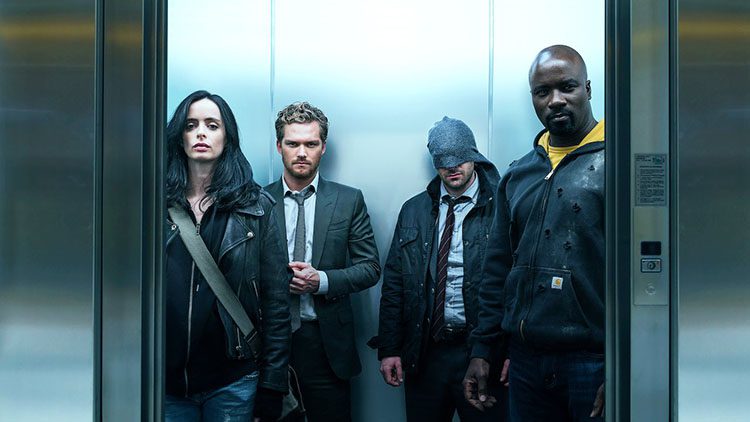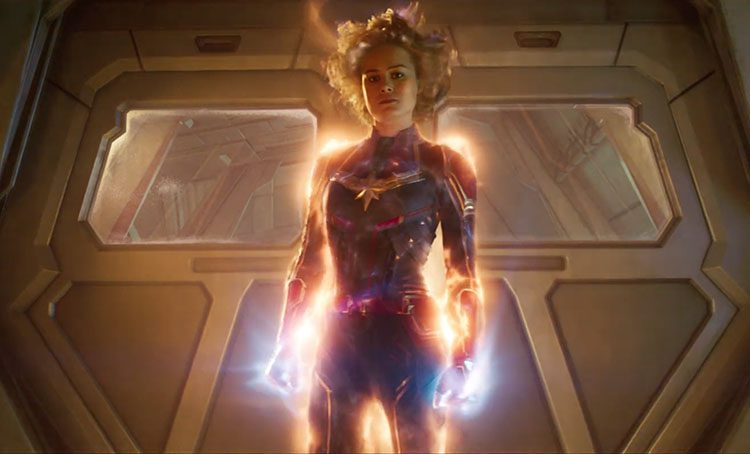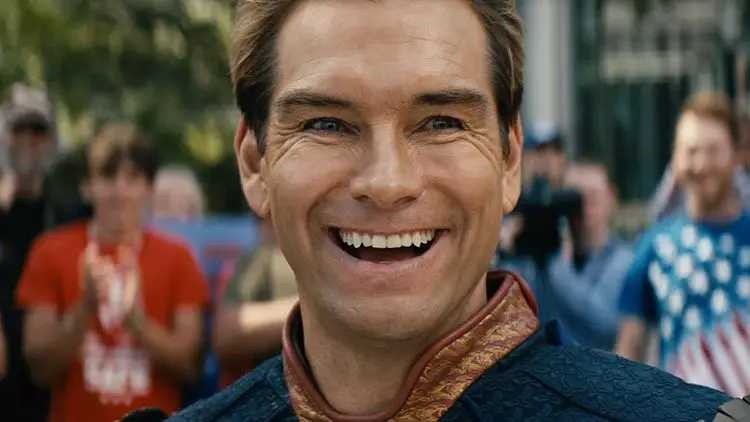Because the MCU has been able to satisfy the incredibly large audience for their films with these narratives of violence and the justified actions in reaction to it, they have been able to use that satisfaction to make over $22 billion from the movies in the franchises alone. The success has allowed Marvel Studios and Disney to expand into media that very much falls more into the Dark subgenre of superhero stories than the Typical subgenre that serves as the foundation for the franchise.
The 6 Netflix television series that came out between 2015 and 2019 — Daredevil, Jessica Jones, Luke Cage, Iron Fist, The Defender, and The Punisher — were Marvel’s first forays into the Dark subgenre, and they were all generally well-received by critics and general audiences in their first seasons. These first seasons managed to succeed where Man of Steel and Batman vs Superman failed in that they were able to pair their violent nature with optimistic endings that didn’t feel out of place.
These shows were also even more grounded in reality than the MCU movies were, which makes sense due to their subgenre. There are references to the more fantastical parts of the MCU, but they’re only verbal references and nothing past that. They manage to stay connected to the canon of the movies without causing a narrative rift to form between the two subgenres of content that make up the franchise.
All of Marvel’s success with these shows does not mean that it is infallible. These shows in the Dark subgenre all faced criticism in their later seasons as they became less and less satisfying to the audience because they began to suffer from the same disconnect that the DCEU films did. This goes to show that while the Dark subgenre of superhero stories can be successful — and therefore satisfying — on screen, there is a thin line that they must walk to reach that audience satisfaction.

There Is No Perfect Formula
This is not so to say that every piece of superhero media in the Typical subgenre is infallible either. Within the MCU, there are multiple films that were able to pull in massive amounts of money for the franchise that weren’t able to create the same ubiquitous satisfaction that the most popular MCU movies did. The 2019 film Captain Marvel is the most recent example of this shortfalling.
While the film managed to pull in over $1 billion in worldwide box office revenue, there were some who felt that Carol Danvers’ defeat of her mentor, Yon-Rogg, fell flat compared to other villain takedowns. In short, this is due to the lack of violence that Carol throws at Yon-Rogg. Instead of foregoing her fully realized powers to beat him into the ground, something that would be reflective of him beating her in their earlier sparring sessions, Carol uses her powers to quickly knock him down and send him back to his home planet.
Within the narrative of the film, this decision makes sense. Yon-Rogg has made a show of telling Carol throughout the film — and presumably throughout their entire mentor/mentee relationship — that she needs to prove herself to him, and even when he begins a speech to set up what would be the traditional final battle of the movie he says “Turn off the light show, and prove to me you can beat me without [your powers and emotional shortcomings].” Instead of doing as he requests, she hits him with a blast of her powers and declares “I have nothing to prove to you,” and this works as a satisfying end to her emotional arc with him.
Yon-Rogg has told her over and over that she needs to be able to defeat him without her powers in order to truly be better than him, and that the link between her emotions and her powers is a weakness. Her defeat of him being short and sweet is her proving to herself that not only is he wrong about her emotions being a weakness, but that it doesn’t matter whether or not she can win in a no-powers hand-to-hand match with him because she can just take him out without a second thought anyway.
This satisfies the feminist thread in the film incredibly well, but for some, it failed to satisfy the violence that audiences crave from even the lightest superhero movie. One hit isn’t enough to satisfy what many audiences think Carol’s revenge should be. Yon-Rogg lied to her and manipulated her for years, and despite not fulfilling her arc in the same way, many felt that seeing her win a fight against him would be justified violence that could easily satisfy the audience.
One must also take into consideration that Captain Marvel is a film with a female lead and is therefore the target of criticisms that its male-led predecessors would not have faced. Still, it is undeniable that there is a lack of what many might call deserved violence towards the main villain of the film. Even with the removal of the sexist bias against the movie, it is understandable that one might find the final conflict between Carol and Yon-Rogg unsatisfying when put up against 20 other films that do deliver the violence audiences crave.

Welcome to Alan Moore’s Worst Nightmare
On another end of the scale, there is the success of the Bleak Superhero genre. As previously stated, this genre is the most gratuitous in its depictions of sex and violence, but is also the most successful when it is as grounded in reality as possible. Because the atmosphere of these pieces of media is incredibly grounded in reality, they are most successful when the narratives are grounded in reality as well.
The Boys is proof that this subgenre is viable. The series was able to bring in 8 million viewers within the first 10 days of its first season premiering, and this carried onto a massively successful season two and a season three renewal. The Boys takes place in a world where superheroes are just another vestige of a capitalist society, in a way that is not so dissimilar to how we view superheroes in real life.
Despite these heroes — in name only — being real people, there are still comic books, action figures, and even fictionalized movies about them that exist inside of the show. The story is so strongly cemented in reality that the graphic violence that takes place is acceptable simply because it would take away from the realism if it wasn’t as intense as it was.
Superheroes are an established presence in this world. They have deep ties with evangelical Christianity because, like in the real world, that is financially beneficial for those who are in charge. They are commercialized and organized by a multinational corporation — Vought International — who keeps everyone’s image in check in order to keep power. The US government also has its hands in things, and the entire reality that the showrunners create has layers and layers of things to convince the audience that The Boys tells a story that is only an alternate reality away.
The difference with violence in The Boys and other media in the Bleak Subgenre — like Invincible and both the Watchmen movie and television series — is that it is allowed to be so gratuitous because the perceived reality convinces the audience that it should be allowed to be. Homelander can split people in half with his heat vision, so he does, and it is made to look real in order to continue grounding the story in reality.
His personality is hyper-realistic as well; he is essentially a god among men, and while he can’t publicly act out, he certainly can in private. He grows up with no mother, and the psychological effects of this lead to him having an Oedipal complex. He causes the death of an entire plane of people — people he was supposed to save — with no remorse. He murders government officials and their families to keep Vought’s interests in order. And, he ends season two proclaiming “I can do whatever the fuck I want!”
A man with his powers building up a god complex like that is also grounded in reality, and the audience can easily see that despite being told that Homelander is a hero, he is far from one outside of the image that Vought maintains for him. The true “heroes” in The Boys are not purely good people either.
The group ranges from “trying their best to stay good” to “someone who has almost completely let go of their morals”, but put simply these characters can be classified as antiheroes. They still commit a large amount of violence like the falsely named heroes of Vought International do, but as they have faced violence either from a specific hero or from the general conglomerate of Vought, they have a justified root in the violence they commit like any other hero that audiences are expected to root for in the superhero genre.
The gratuitous violence clearly isn’t a turnoff in television shows and movies like this. I would argue this is because even when it doesn’t have the classic hero justification behind it, it has to be gratuitous to keep the atmosphere of the story being told intact.

The Unbreakable Standard
In the end, there is uniformity in the needs of each popular superhero subgenre in order for them to be successful. The common denominator is violence, and that violence cannot be senseless lest it alienate the audience from the character they are supposed to be sympathizing with.
Instead, for a hero to commit any form of violence, there must be equal or worse violence committed against them, or something or someone that they are charged with protecting, which can be as abstract as the common good of humanity or the universe. The massive popularity of the Western as a film genre arguably primed the world’s movie-viewing audience for stories like this to take over, as this justified violence was a key element of Westerns despite the much smaller stakes of those stories.
This justified violence is a large part of what satisfies the audience, as it is a way for them to, again, feel good about good people doing bad things. However, while violence is a major draw for fans of superhero stories, there is still the all-important factor of the tone and atmosphere that the story takes place in.
Without consistency, the movie or television show will fail to have violence that is justified as it will seem as out of place as the rest of the story and its elements. The failure of the DCEU falls on this tonal imbalance. In contrast, the MCU is proof that not only will having a well-defined environment in your stories bolster their success, but that success can be so great that a franchise can potentially become too big to fail.
The combination of violence and tonal and ambient consistency in superhero films is what makes them successful enough to dominate the movie market no matter the subgenre. Of course, there is still a heavy bias towards films in the Typical subgenre, but aside from that being the most palatable of the subgenres, it also benefits from being the most family-friendly.
The Bleak subgenre is arguably the second most popular of the three defined subgenres, which proves that demographic size is not something that guarantees success. Because these stories are so dark, they have to be even more realistic than movies in the Typical or Dark subgenres because they have to justify the violence in two ways instead of the traditional one.
Violence committed by the protagonists must be justified by the violence committed against them — this applies to all superhero stories — and the graphic nature of the violence must be justified by the world the story is set in being as close to the real world as possible. This is where the Dark subgenre so often fails; the violence isn’t going to be as gruesome as something in the Bleak subgenre, but it can’t be something fantastical that might be seen in the Typical subgenre either.
Many pieces of superhero media that fall into the Dark subgenre try to commit to a world that is gritty and grounded but then have outlandish, unrealistic villains that create a disconnect for the audience. The Dark subgenre is not the only subgenre that can fail, it is just the hardest of the subgenres to make satisfying within its restraints.
Any movie or television show can prove unsatisfying with a noticeable enough deviation in justified violence and tonal consistency, but the movies in the Dark subgenre have done so many times that they have led to the collapse of what, on paper, could have been a successful DC superhero franchise.
Images Courtesy of Prime Video and Marvel Studios
Have strong thoughts about this piece you need to share? Or maybe there’s something else on your mind you’re wanting to talk about with fellow Fandomentals? Head on over to our Community server to join in the conversation!

